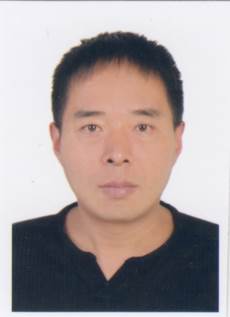At the invitation of the College of Earth and Environmental Sciences of Lanzhou University, researcher Chen Rensheng and researcher Miao Yunfa of the Northwest Institute of Eco-Environmental Resources, Chinese Academy of Sciences will conduct academic exchanges on April 24, 2023. Teachers and students are welcome to participate!
Speakers: Researcher Chen Rensheng, researcher Miao Yunfa, Northwest Institute of Eco-Environment and Resources, Chinese Academy of Sciences
Topic: Salon on National Key Research and Development Programme Projects
Moderator: Professor Geng Haopeng, College of Earth and Environmental Sciences, Lanzhou University
Time: April 24, 2023 (Monday) 15:00-17:00
Location: Conference Room 501, Qilian Hall
Expert profile:

Chen Rensheng, male, born in Shandong in 1974, is a second-level researcher at the Northwest Research Institute of the Chinese Academy of Sciences, deputy director of the Water and Land Resources Research Office in Cold and Drought Areas, the head of the Upper Heihe Station, deputy director of the Key Laboratory of Ecohydrology for Inland River Basins of the Chinese Academy of Sciences, and a doctoral supervisor. Winners of the first batch of national excellent youth projects, leading talents in Gansu Province (second level), specially-appointed experts in Shanxi Province (thousand-person short-term), specially-appointed researchers of the Chinese Academy of Sciences and candidates for specially-appointed core posts, and project leaders of national key R&D projects. From 1992 to 1999, he obtained a bachelor's and master's degree in the School of Resources and Environment of Lanzhou University. In 2002, he worked at the Northwest Research Institute of the Chinese Academy of Sciences (formerly the Institute of Cold and Drought) after his doctoral graduation. Director of CliC and CNC-IUGG/IACS Cold Region Hydrology Professional Committee, Vice Chairman of CNC-IAHS Ice and Snow Hydrology Subcommittee, Director of Chinese Society of Cryosphere Science and Director of Cryosphere Hydrology Professional Committee, Director of Chinese Geographical Society, etc. He has successively presided over 1 national key R&D project, 2 973 projects, 7 National Natural Science Foundation of China (including major projects, key support projects of major research plans, etc.), published more than 220 papers, 2 monographs, and deputy editor-in-chief And participated in the compilation of 16 books, authorized software and patents nearly 20 items, adopted by the State Council, and a consultation report issued by the Prime Minister, and participated in the first prize of Gansu Provincial Natural Science Award, the second prize of National Science and Technology Progress Award, and the Outstanding Scientific and Technological Achievement Award of the Chinese Academy of Sciences.

Miao Yunfa, male, born in Jiangsu in 1978, is a researcher at the Northwest Institute of Eco-Environmental Resources, Chinese Academy of Sciences, deputy director of the Desert and Desertification Research Office, and a doctoral supervisor. The fourth batch of top-notch young talents of the "Ten Thousand Talents Program" of the Organization Department of the Central Committee of the Communist Party of China, an outstanding member of the Youth Innovation Promotion Association of the Chinese Academy of Sciences, a class A young scholar of the Light of the West, a leading talent in Gansu Province (second level), and the chief of the National Key R&D Program Project. From 1997 to 2007, he was an undergraduate and master-doctorate student at the College of Earth and Environmental Sciences of Lanzhou University. From 2007 to 2010, he was a postdoctoral fellow at the Qinghai-Tibet Plateau Research Institute of the Chinese Academy of Sciences. Since 2010, he has worked at the Northwest Institute of Eco-Environment and Resources of the Chinese Academy of Sciences. His main research direction is past environmental changes. The key point is to use pollen as a proxy indicator, take vegetation ecology-climate change-plateau uplift as the main line, and carry out research on vegetation-climate evolution on a large spatial scale in Asia and the elevation history of the northeastern Qinghai-Tibet Plateau. At the same time, it focuses on the analysis of modern processes such as desertification and climate change and their effects under the background of global warming from the perspective of palynology, providing a reference for understanding past changes. He has successively presided over 4 projects of the National Natural Science Foundation of China; 6 palynology patents have been authorized, and 100 academic papers have been published (including 26 SCI papers, including Science, Earth-SciRev, Geology, GondwanaRes, etc.).